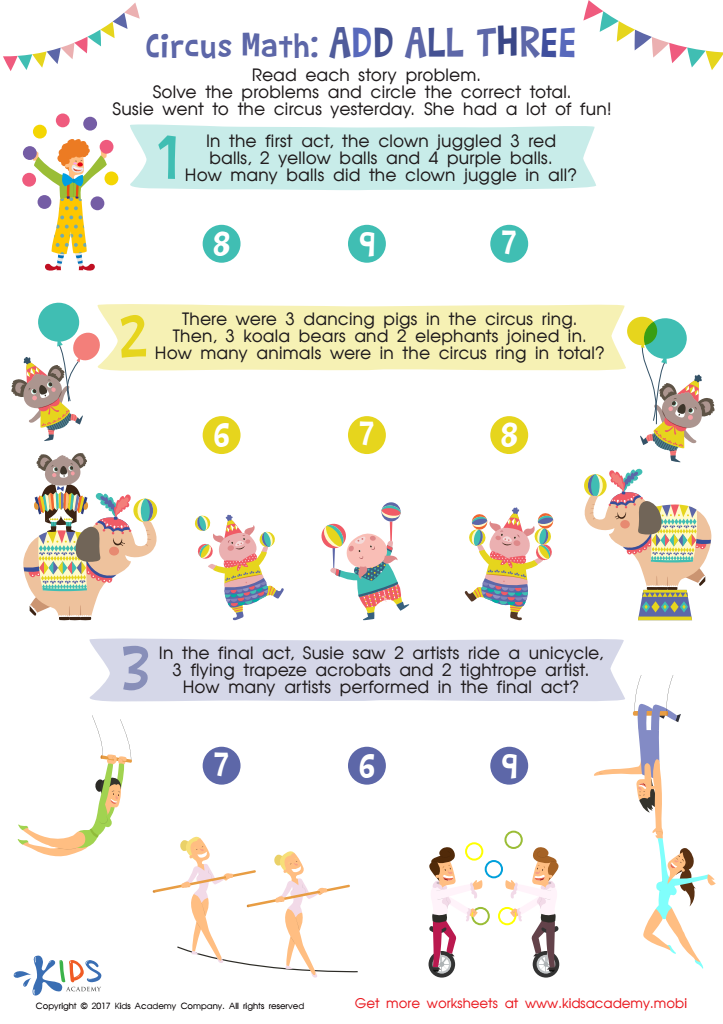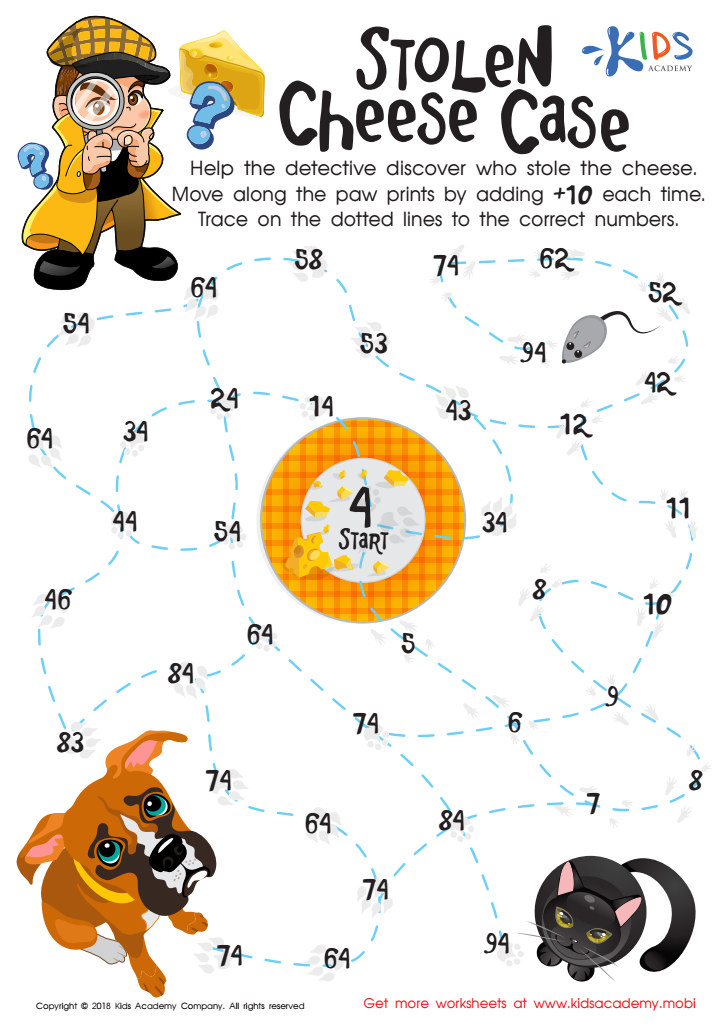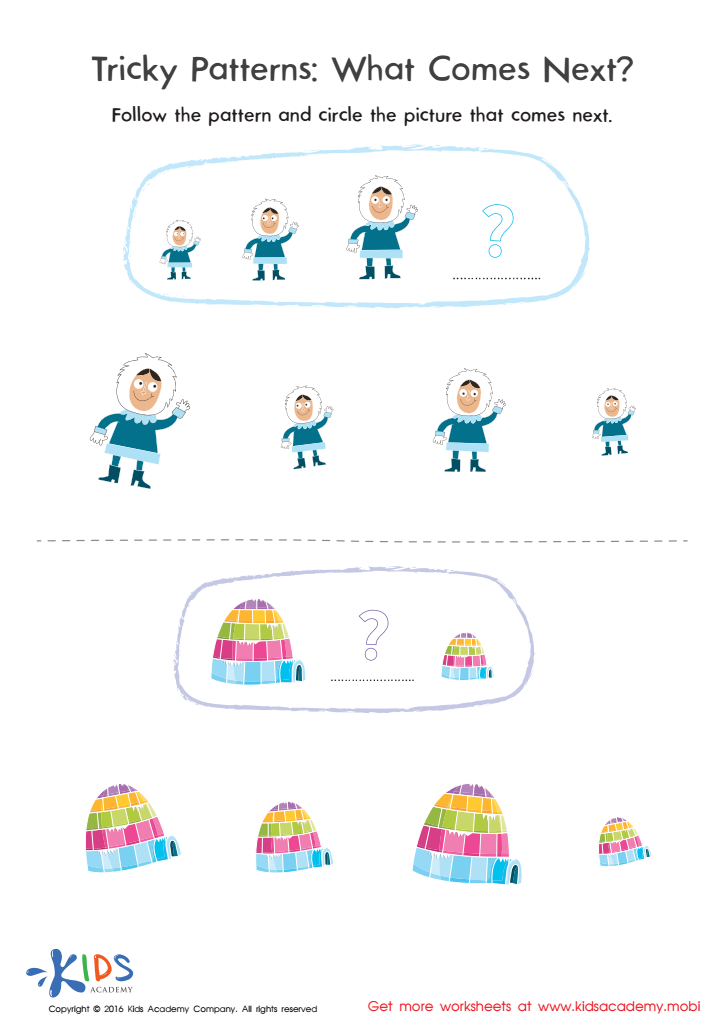Logic development Worksheets for Ages 5-9
4 filtered results
-
From - To
Enhance your child's critical thinking skills with our engaging Logic Development Worksheets designed for ages 5-9. These worksheets are perfect for nurturing logical reasoning through fun and interactive exercises. Children will tackle puzzles, patterns, and problem-solving activities that stimulate cognitive growth and build essential skills for school readiness. Each worksheet is aligned with educational standards and promotes independent learning while keeping your child entertained. Our diverse selection allows kids to learn at their own pace, making lessons enjoyable and effective. Explore our Logic Development Worksheets today and watch your little ones develop essential thinking skills while having fun!


Circus Math Printable


Stolen Cheese Case Maze Worksheet


Tricky Patterns Size Worksheet
Logic development in children aged 5-9 is crucial for several reasons. At this stage, children are naturally curious and eager to understand the world around them. Developing logical thinking skills lays a strong foundation for their academic success and everyday problem-solving abilities. Parents and teachers should prioritize logic development to enhance critical thinking, which empowers children to analyze situations, draw conclusions, and make informed decisions.
Additionally, logical reasoning is essential for mathematics, science, and reading comprehension. Students who grasp logical concepts are better equipped to tackle complex problems and understand relationships between different ideas. This foundational skill enhances their ability to work collaboratively, as it often requires articulating thoughts and reasoning with peers.
Moreover, fostering logic in children contributes to emotional intelligence. Learning to reason through their thoughts helps them manage conflicts, navigate social situations, and develop resilience in facing challenges. Ultimately, supporting logic development enriches children's cognitive abilities, nurtures creativity, and prepares them for future academic endeavors. Engaging in activities like puzzles, games, and open-ended questions not only bolsters these skills but also deepens the bond between parents, teachers, and children through shared learning experiences.
 Assign to My Students
Assign to My Students

















